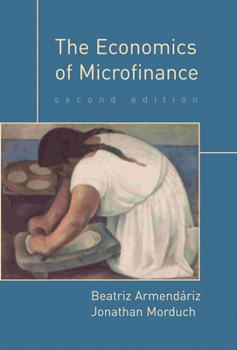The Economics of Microfinance
Select Format
Select Condition 
Book Overview
The microfinance revolution has allowed more than 150 million poor people around the world to receive small loans without collateral, build up assets, and buy insurance. The idea that providing access to reliable and affordable financial services can have powerful economic and social effects has captured the imagination of policymakers, activists, bankers, and researchers around the world; the 2006 Nobel Peace Prize went to microfinance pioneer Muhammed Yunis and Grameen Bank of Bangladesh. This book offers an accessible and engaging analysis of the global expansion of financial markets in poor communities. It introduces readers to the key ideas driving microfinance, integrating theory with empirical data and addressing a range of issues, including savings and insurance, the role of women, impact measurement, and management incentives. This second edition has been updated throughout to reflect the latest data. A new chapter on commercialization describes the rapid growth in investment in microfinance institutions and the tensions inherent in the efforts to meet both social and financial objectives. The chapters on credit contracts, savings and insurance, and gender have been expanded substantially; a new section in the chapter on impact measurement describes the growing importance of randomized controlled trials; and the chapter on managing microfinance offers a new perspective on governance issues in transforming institutions. Appendixes and problem sets cover technical material.





